Hattie
THE LIFE OF
HATTIE MCDANIEL
Hattie
THE LIFE OF
HATTIE MCDANIEL
CARLTON JACKSON

Copyright 1990 by Carlton Jackson
All rights reserved. No part of this book may be reproduced in any form or by any electronic or mechanical means, including information storage and retrieval systems, without written permission from the publisher, except by a reviewer who may quote passages in a review.
Published by Madison Books
An imprint of The Rowman & Littlefield Publishing Group, Inc.
4501 Forbes Boulevard, Suite 200
Lanham, Maryland 20706
PO Box 317
Oxford
OX2 9RU, UK
Distributed by National Book Network
The paper used in this publication meets the minimum requirements of American National Standard for Information SciencesPermanence of Paper for Printed Library Materials, ANSI Z39.481984.  Manufactured in the United States of America.
Manufactured in the United States of America.
Library of Congress Cataloging-in-Publication Data
Jackson, Carlton.
Hattie : the life of Hattie McDaniel / by Carlton
Jackson.
p. cm.
Includes Bibliography, Index.
1. McDaniel Hattie, 18951952. 2. Motion picture actors and actressesUnited StatesBiography.
I. Title.
PN2287.M165J3 1989
791.43028924dc 19 8930903 CIP
[B]
ISBN 978-1-56833-004-4
To my beautiful daughters, Beverly and Hilary;
and my fine sons, Daniel and Matthew
Contents
A section of photographs follows .
Acknowledgements
Many people helped me to write this book, and I wish to thank them. As always, nothing could have been done without good libraries and efficient librarians. Tim Spragens, Paul Bailey, and Prentiss Moore, were very helpful to me at the Ransom Humanities Library at the University of Texas in Austin. Ned Comstock and his colleagues also provided good services at the University of Southern California.
Maxine Fleckner and her staff of the Wisconsin Center for Film and Theater Research, at the University of Wisconsin, and the staffs at the Library of Congress and NAACP in Washington, D.C., went out of their way to help me, and I am appreciative. At the University of Kentucky Library in Lexington, Rob Aken supplied me with some helpful information.
In Denver, Joan Reese provided me with some much needed research, as did Brian E. OConnell in New York. I thank them both for their help.
Others whose cooperation was essential to the successful completion of this biography include Carlton Moss, Joel Fluellen, Jester Hairston, Wonderful Smith, Elzi Emmanuel, James and Eva Goodwin, Ernest Anderson, Ken Nelson, Frances Williams, Frances Melton, Michael St. John, Ethel Jordan, Olivia de Havilland, Butterfly McQueen, and Jack Mertes.
No author would get very far without good editors behind him. I have been extremely fortunate in having some of the best. Professor Thomas Cripps of Morgan State University in Baltimore, Maryland, edited the entire manuscript, and improved it considerably. Also, my friend and colleague at Western Kentucky, Professor Joe Millichap, read it and gave critical and much appreciated advice. Linda Busetti, at Madison Books, did a superb job of editing and proofreading. I wish especially to thank the associate publisher at Madison Books, Charles Lean, for his constant encouragement and help.
I wrote much of this book while on an extended visit to Dhaka, Bangladesh. I thank my friends there: Mary Furgal, David Grimland, Joe Foote, and others who encouraged me and helped develop the manuscript in various ways.
Here at Western Kentucky University, I was aided by grants from the Faculty Research Committee. To each member of that committee: thank you. My student assistant, Jim Johnson, was indispensable as he performed dozens of useful tasks in the research phase of this book; and librarian Susan Tucker, was most cooperative and helpful. To all these people, I give my sincere thanks.
And finally, to my family, Pat, Beverly, Daniel, Matthew Hilary, Steve and Grace; and to Colleen, Megan, Kate, Travis, Patrick, and Austin: thanks.
Carlton Jackson
Western Kentucky University
Introduction
Hattie McDaniel was the black woman who played Mammy in Gone With the Wind. As the movie approaches its fiftieth anniversary in 1989, Hatties fame as Mammy shows every sign of becoming increasingly strong.
Her role as Mammy has remained the most remembered of her motion picture performances. As the years have passed since the movie was made in 1939, her part in it has evolved in the minds of movie fans almost to the point of being equated with the roles of Rhett Butler and Scarlett OHara. The scene on the stairway where Mammy tells Melanie Wilkes that Mr. Rhett wont let his daughter, Bonnie, be buried, has lingered as one of the great moments in movie history. More than any other, it was that scene that won her the Academy Award for Best Supporting Actress in 1939. She was the first black ever to win an Oscar.
Hatties Mammy image is somewhat unfortunate because it tends to obscure many of the other things she did. She played in over 300 movies and received screen credit in more than eighty of them. She played a maid or cook in the majority of these roles, which made Hattie a target for the National Association for the Advancement of Colored People. As a consequence, she spent much of her time in the mid and late 1940s defending herself.
Her role as Mammy, too, has caused many people to overlook Hatties contribution to radio. She started out when radio was in its infancy in the 1920s, and ended in the early 1950s, just as radio was beginning to give way to television.
For half a decade Hattie played Beulah on the radio, and in that role, I shall argue, she diminished some of the stereotypical image of black subservience with which the NAACP had charged her. She refused to use dialect in Beulah, a program that became the most popular offering in radio history. It was heard each night by around 20 million people.
Her role as Beulah probably did more to enhance black careers than Hattie and the people around her realized, and it would be fair to say that Hattie became an unwitting reformer. That is, as I shall maintain, she did not start outas the NAACP diddeliberately to change the system; she changed it by example rather than by words. Perhaps that feat was her greatest accomplishment.
In this book I try to present a balanced picture of Hattie McDaniels triumphs as well as her defeats; and to show that she was strong-willed enough to overcome most of her adversities. Those people who saw her as the jolly, bubbling, and happy-go-lucky maid in one movie after another, did not realize the often traumatic experiences she was undergoing in real life. Likewise, the radio audience for Beulah didnt realize how unhappy Hattie really was when she performed in some of her shows.
By adapting her many talents to the technological achievements of the day, Hattie McDaniel made a significant contribution to her race, and to the film, radio, and television arts.
CHAPTER ONE
That Talented McDaniel Family
The event at Denver East High School that night in 1910 was not exactly Carnegie Hall fare, but it did bring out a sizeable portion of the citys population. They came to hear a highly publicized program sponsored by the Womens Christian Temperance Union.
Next page

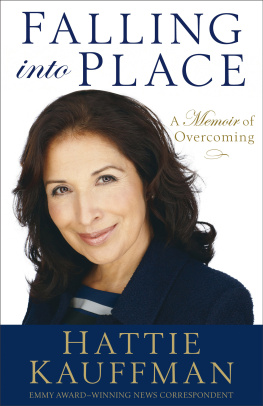


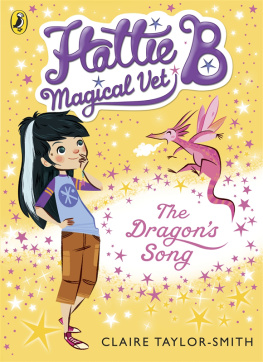
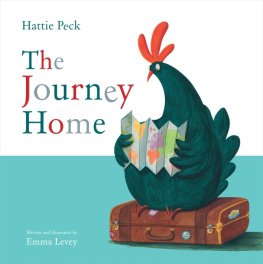

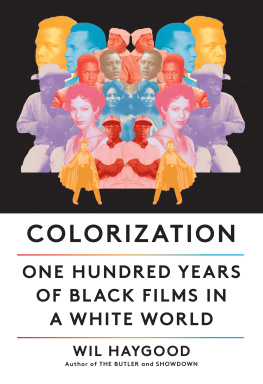
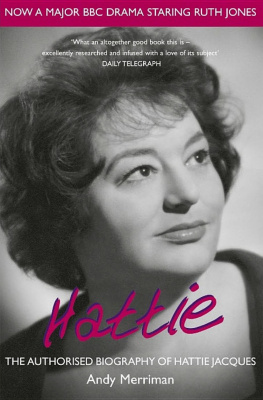
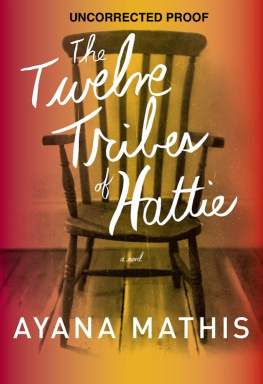

 Manufactured in the United States of America.
Manufactured in the United States of America.